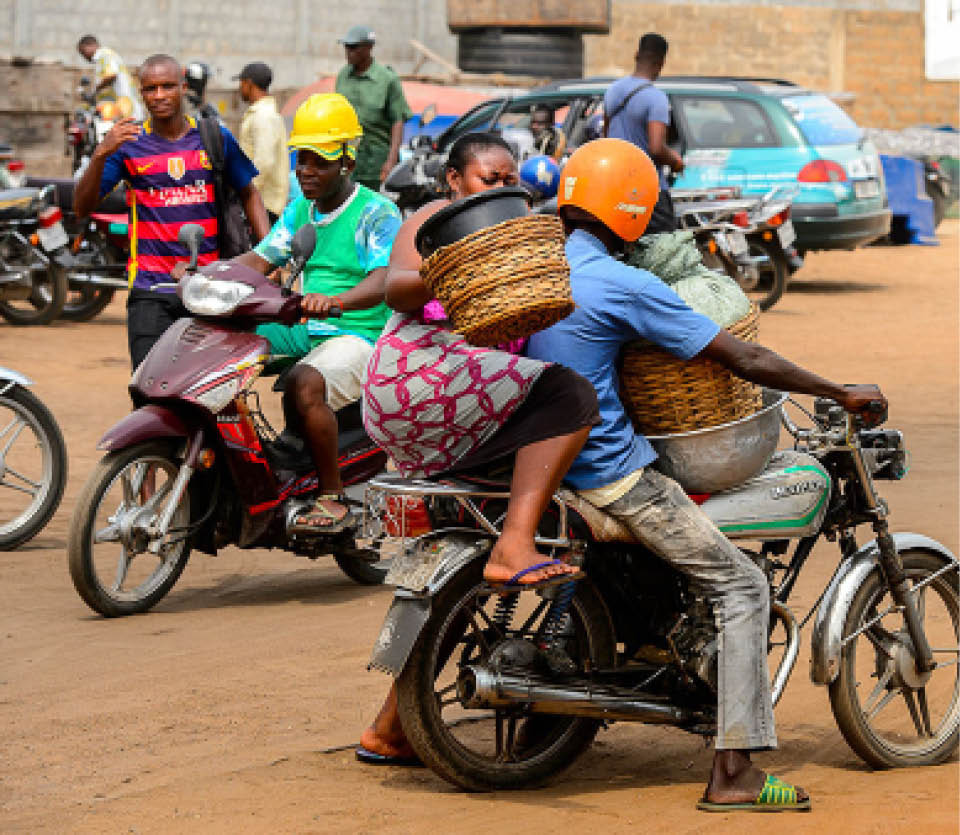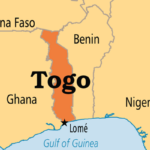Sometime in April of 2005, I travelled to Togo as part of a monitoring team for that country’s presidential election. For those who can remember, it was quite a pickle the Togolese found themselves in, as Faure Gnassingbe – the son of Togo’s late dictator whose 38 years in power had made him Africa’s longest-ruling – won, sending enraged opposition supporters into the streets, battling police and soldiers. Now, the military had installed Gnassingbe as president shortly after his father, Gnassingbe Eyadema, died of a heart attack on Feb. 5. After international pressure, the then 39-year-old agreed to an election. And that was just the beginning of the drama. Now, 17 odd years after, I am serving this to readers, many of you who have not read it, or some of you who emailed and texted, requesting a reprint. While I’m certainly not terribly fond of the events that led to writing the following piece, I hope you enjoy reading. – Abdulkareem
It was surprisingly easy to cruise through customs at the Seme border into the Benin Republic, as I did courtesy of a stolen passport. By the time we passed all checks, legal and otherwise, we the passengers in the BMW 7 Series had developed a rapport of sorts. In the big and spacious car sat myself, my colleague Abdul-Fattah Olajide from the Daily Trust’s Lagos office; a twenty-something girl called Joy; a greying German who goes by the name Lance and teaches French in a Lagos Private School; then finally, the driver – a Togolese man in his mid-forties who kept being called ‘Pastor’ at most checkpoints.
- Osun gov’ship: Court nullifies Oyetola’s APC nomination
- FG executes N8bn projects in Benue agric varsity
The journey through Benin Republic was unexciting and I slept through most of it. Things, however, took an unexpected turn once we reached the Benin/Togo border, smack in the middle of an unassuming town called Hillakondji. Upon reaching the border town, I noticed we were in traffic jam of sorts and me, the driver and other passengers dropped, thinking we would simply go through customs and drive through. The customs officials, who spoke little or no English at all, answered us bluntly in various local Togolese tongues. From their gestures, we could figure out that the border was closed on the Togolese side, and that we were beginning to irritate them.
After a tedious French conversation with a handful of people, I gleaned information that the border was ordered shut by the Togolese government. I soon lost count of the dozens of alternative theories that began to pop-up, sticking with my then personal favourite, which said the lock-up was ordered because the Togolese interior minister had called a press conference to denounce Faure Gnassingbe’s bid for the presidency, and was on the run (I would later discover that the incident did occur).
I was supposed to be in Togo at that particular moment, actually, but had contacted the Ministry of Integration on Co-operation in Africa a little too late. Aided by some miscommunication, the Nigerian media team which the ministry took along to Togo , left without me. I had proceeded on the trip, intending to meet with the liaison whose Togo phone number was included on the invitation letter served to my employer. I pondered all this while two hours passed, and realized nothing was moving, literally. After saying my zuhr prayer, I looked round and found a pay-phone. I called and asked for Dr Amba, a Permanent Secretary at the ministry. He answered after the first two rings, surprised to hear from me that I was at the border.
After we established that nothing could be done to get me and Abdul-Fattah Olajide across, I hung up, but not before I got an address. I went back to the car to find the German, Lance, about to depart for Benin to stay there for the night, ultimately returning to Lagos the next day. After the German’s departure, Olajide, Joy and myself were joined by one Ngozi Egbudike, a principal News Editor of the Voice of Nigeria (VOA). We had all been approached by some locals willing to smuggle us into Togo for a price and we tabled it to Pastor, our driver, who promptly discouraged us against it.
Pastor began to boast about how he would cross us over in a canoe once it became dark, and it suddenly dawned on us all that he had spent the past two hours soaking himself up in beer. Stuck with a drunken driver, a closed border and darkening skies, I asked my companions to make a decision before night falls, whether to cross illegally or not. The options included being smuggled by canoe over the sea, or on foot through tortuous topography and at the mercy of gendarmes. Both choices hung on, while we dilly-dallied on them.
It was about 8:30 pm that night of the 23rd of April 2005 that we all finally agreed to retrieve our luggage from pastor’s BMW, to seek out alternative means of entry into Togo. We picked out a brother/sister team consisting of a fellow called Edh (pronounced Edo, like the Nigerian state) and a girl called Janette, both of them residents of Hillakondji and fluent speakers of many commonly-spoken languages there, even if their French was abysmal.
Our trek onto Togolese soil was an ordeal, physically and mentally. Firstly, one had to contend with the sandy terrain which slows down movement and causes extreme tiredness. Also, the bushes were thick and tall, and anyone or anything could be lurking in the shadows, waiting to pounce. Secondly, the women in our group (apart from the guide Janette, who’s used to the geography of the area) were lagging behind and we had to stop and wait for them to catch up with us several times. We encountered scores of groups armed with machetes and other frightfully inventive implements.
Through all this, Ngozi proved to be our very own ‘prayer warrior’, and she could be heard from the extreme end of our party praying earnestly and out-loud, except for when she needs to be quiet so we can pass an area unheard. Some groups would allow us to pass once they recognized Edh and Janette, but some would circle us and demand for money in return for our safe passage. Several thousands of CFA France exchanged hands, as did naira, and soon we had one last big hurdle to cross: the border patrol.
To be continued

 Join Daily Trust WhatsApp Community For Quick Access To News and Happenings Around You.
Join Daily Trust WhatsApp Community For Quick Access To News and Happenings Around You.

